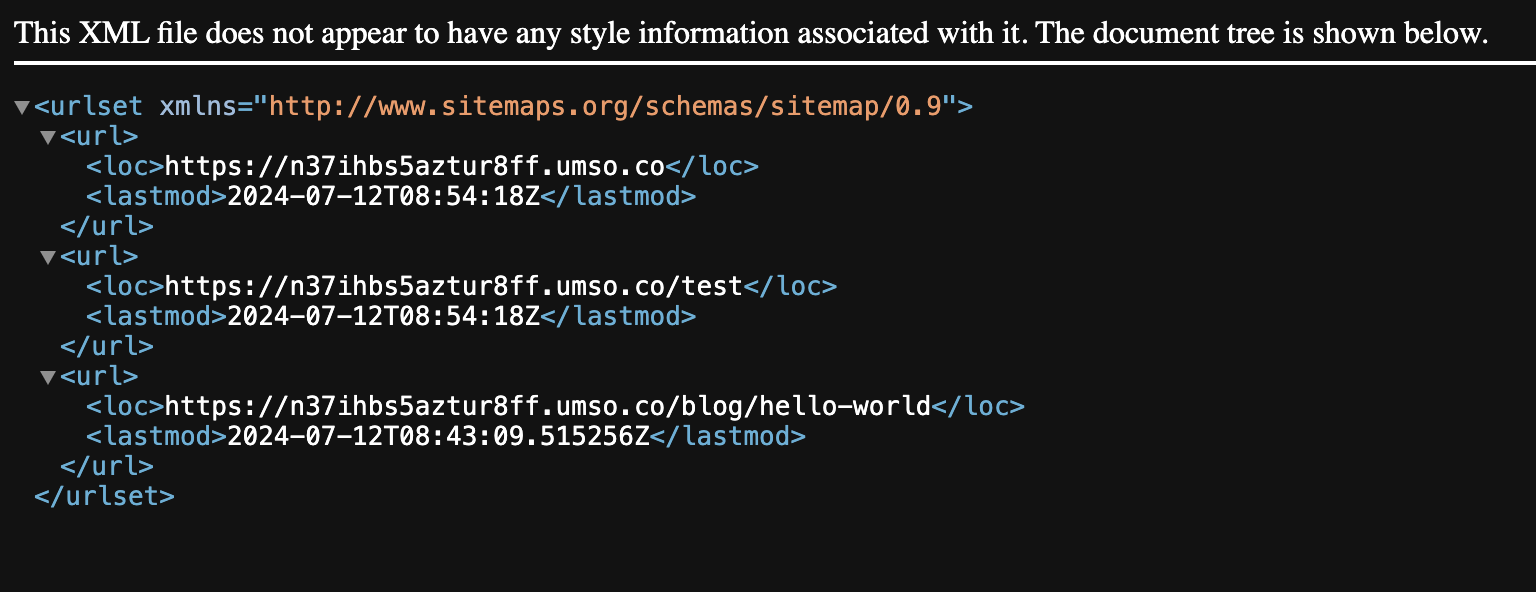Working with your Site SEO
SEO stands for "search engine optimization" and is the process of improving the quality and quantity of website traffic. To improve the "natural or organic" traffic to your website the setup and the content of your websites have the biggest impact on success.
Umso sets up your website as good as possible in terms of SEO but of course your content is required. You can learn more about what Umso sets up automatically and how your content can improve your SEO further.
Meta Tags
Meta elements are in your website's <head> and help search engines understand what your site is about.
The title and description of your website are put automatically in your <head> by Umso but of course, you have to fill these inputs in your "Page Meta" with your specific content.
Important for the title is to be under 600 pixels wide, describe your page, and have your target word near the front of the title.
Important for the description is only up to 300 characters are shown and it's not used in rankings but it can help to get clicks through to your website. If words of your description match a search term they will appear bold. Try to empathize with what your customers are searching for and write your description after that.
Umso also sets up a <link rel=”canonical”> tag to show the search engines the original source of content and Facebook/Twitter tags if you have configured at least one of them.
You can validate your meta tags using the social media card validation:
Social media cards might change its requirements. We try to make sure the major social media cards are being supported and up to date. If you notice your card is not being loaded properly, please contact our support at [email protected]
Robots.txt
This file instructs web robots on how to crawl your page. You should be using it if you have a login, member area, or password-protected area which not all visitors can access. You don't want the crawlers to waste their time on content that is not available for people without access because that will not improve the ranking of your site.
Sitemap
The sitemap tells the search engines directly about your page and helps them how to index the content of your site. We automatically generate and update a sitemap based on your published pages. You don't have to create a sitemap yourself. If you have a blog, we also add your blog posts to your sitemap automatically. You can find your sitemap with the ending "/sitemap.xml" on your website. So entering "example.com/sitemap.xml" shows your sitemap as shown here for example:

You can also see this sitemap in your Google Search Console under Crawl > Sitemaps.
Redirects
Using the permanently 301 redirect passes full link equity to the new URL so all links pointing towards your old URL are counting for the new URL ranking.
Choosing the temporarily 302 redirects may not pass full link equity and therefore should only be used for temporary tasks.
Block indexing
If you do not want your site to be indexed and keep the site private in general, then you can set the meta robots tag in your "Meta Tags" under integrations:
<meta name=”robots” content=”noindex, follow”>
On-Page Optimization
Your content needs to be useful for your visitors. You can optimize your website in multiple ways to make it as attractive and helpful as possible to your visitors. A tool can be to use images or videos to illustrate your information. It depends on your product/service which strategy fits your visitors perfectly. Try to emphasize with your visitor and keep in mind to produce high-quality content.
If you need further information for On-Page Optimization we recommend "The Definitive Guide".
Off-Page Optimisation
Off-Page Optimization = get backlinks
It is very little you can do to improve your Off-Page Optimisation besides creating a high-quality website. But you can run campaigns like guest blog posts etc. which will improve your Off-Page Optimisation.
If you need further information for Off-Page Optimization we recommend the blog post "8 Can't-Miss Off-Page SEO Strategies".
